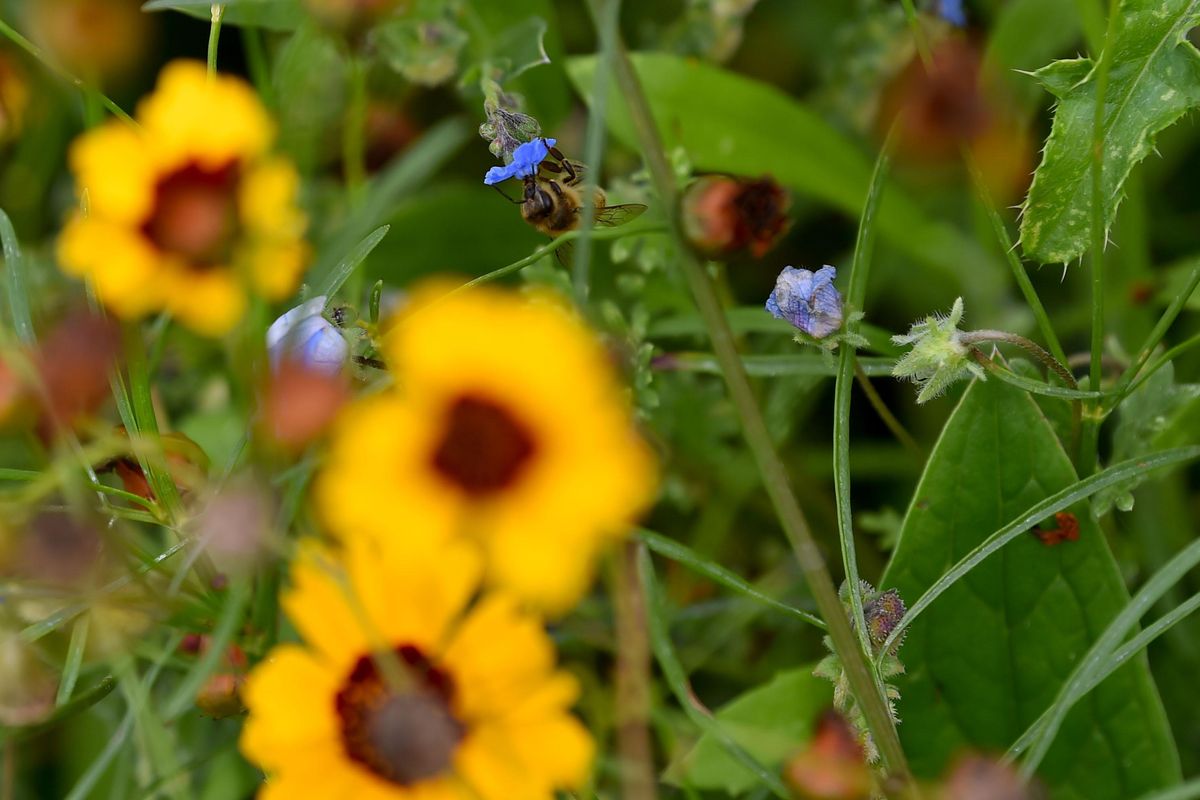Spokane Valley Walmart selected for pollinator garden pilot program

A Walmart store in Spokane Valley was selected by the company to participate in a pollinator garden pilot program designed to beautify the grounds while increasing bee and monarch butterfly populations.
Walmart planted 21 pollinator gardens beginning in late April at stores in Washington, Oregon, North Carolina and the company’s headquarters in Bentonville, Arkansas.
More than 15 of the pollinator gardens were planted at Walmarts across the state, including in Pullman, Ephrata and the Spokane Valley store at 15727 E. Broadway Ave.
The Spokane Valley store was chosen for a pollinator garden from among cities nationwide because of the region’s climate and at the suggestion of Restoration + Recovery, a company that handles stormwater maintenance services for the local retail store, said Wendy Widener, Walmart’s programmatic lead for the pollinator pilot program.
Some of the pollinator gardens include milkweed, a plant that monarch butterflies use for shelter, food and laying eggs. Monarch butterfly populations have dropped 90% since the early 1990s, according to the Environmental Defense Fund.
The U.S. Fish and Wildlife Service is considering adding the butterfly to its list of endangered and threatened species.
The garden pilot program is part of Walmart’s commitment to enhance economic opportunity for communities and encourage sustainability. The company anticipates the pilot program will inspire customers, store employees and communities to plant their own pollinator gardens.
Customers seem to be enjoying the pollinator garden since it was planted in May at the Spokane Valley store, Widener said.
“While I was up in Washington last month looking at the gardens, customers were parking their vehicles next to the gardens to sit and eat their lunch,” she said.
The company will evaluate how the gardens hold up over winter before deciding to roll out the initiative to additional stores, Widener said.
“We will be looking at how they did after the growing season is done, and we will be evaluating if it’s something we can do, but we want to make sure we have the right seeds and right locations,” she said.